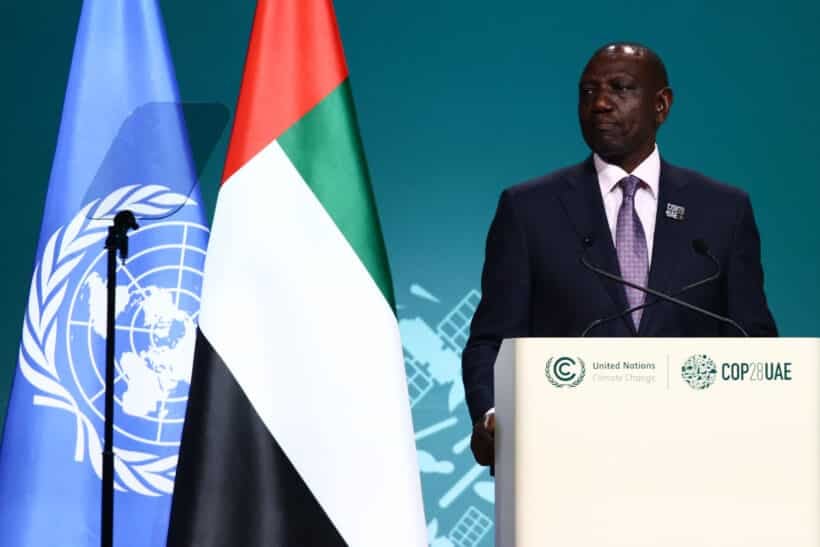
NAIROBI, July 24 (Reuters) – Kenyan President William Ruto on Wednesday nominated four members of the main opposition party to a “broad-based” cabinet he promised in response to nationwide protests, but activists criticised the new government as a corrupt bargain.
The opposition members, including the pick to lead the finance ministry, John Mbadi, are allies of opposition leader Raila Odinga, whom Ruto defeated in the 2022 election.
In a speech from his official residence, Ruto called the new government “a visionary partnership for the radical transformation of Kenya” and thanked those who had consulted on its formation for the “historic gesture of their patriotism”.
Young protesters behind six weeks of demonstrations that forced Ruto to withdraw $2.7 billion in tax hikes said the unity government would perpetuate a tradition of leaders co-opting the opposition at the expense of the population.
More than 50 people have been killed in the protests, which are the biggest crisis of Ruto’s two years in power.
Demonstrations have continued even after he shelved the tax raises, with many activists now calling for him to resign and for far-reaching reforms to tackle graft.
“Zakayo has appointed corrupt people to fight corruption,” Boniface Mwangi, a prominent anti-government activist, wrote on X.
Zakayo is the Swahili name for a greedy tax collector in the Bible that protesters have used as a nickname for Ruto.
“It’s important to note @RailaOdinga is a traitor. He has betrayed the people, and formed a government of national looting with Zakayo,” Mwangi said.
On Monday, Odinga’s Orange Democratic Movement said it was not in negotiations with the government “for any coalition or political arrangement”. The ODM was due to hold a news conference shortly after Ruto’s speech.
The party’s coalition allies have strongly opposed a unity government.
NEW PROTEST CALLS
Besides the four opposition members, Ruto named five members of the cabinet he dismissed earlier this month in response to protesters’ demands. Last week, Ruto announced 11 nominations – six of whom were holdovers from the previous cabinet.
The background of one of the nominees on Wednesday was not immediately clear. Ruto said he would announce additional nominees soon.
He also said he would be proposing amendments to anti-corruption and public procurement laws and called on the police to release any innocent people who may have been arrested during the demonstrations.
The protests, which have been mostly organised online and have no official leaders, began peacefully but turned violent as the police fire tear gas and live rounds. Some demonstrators briefly stormed parliament on June 25.
Activists circulated calls on social media for a march on Thursday to present a petition to the office of the president and lay flowers at parliament for those killed a month earlier.
Ruto initially praised protesters for being peaceful and mobilising across the ethnic lines that have traditionally defined Kenyan politics.
But he has stepped up his criticism of the protest movement in recent days. In comments over the weekend, he vowed to stop the demonstrations, saying they were causing “mayhem and anarchy”.
Anti-government activists have blamed incidents of violence and looting on thugs hired by politicians to discredit the movement and advance their own agendas.
(Reporting by George Obulutsa and Hereward Holland Writing by Aaron RossEditing by Peter Graff and Angus MacSwan)

